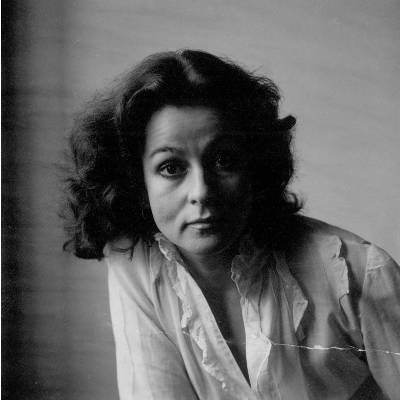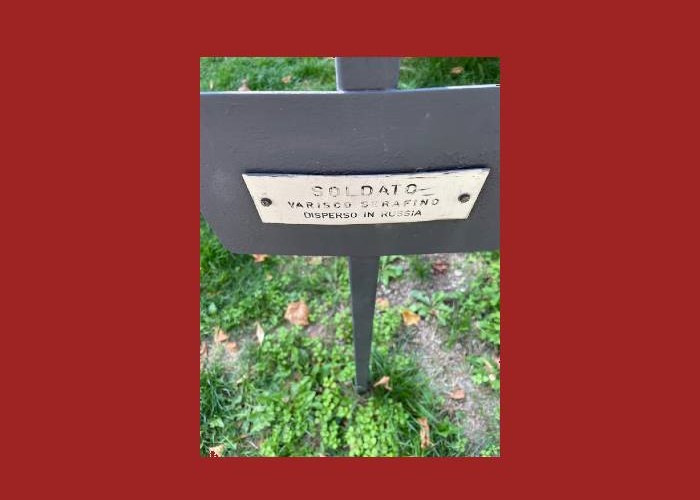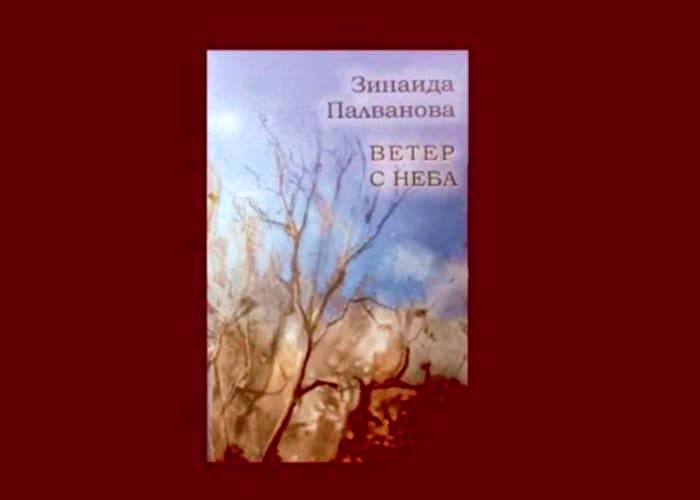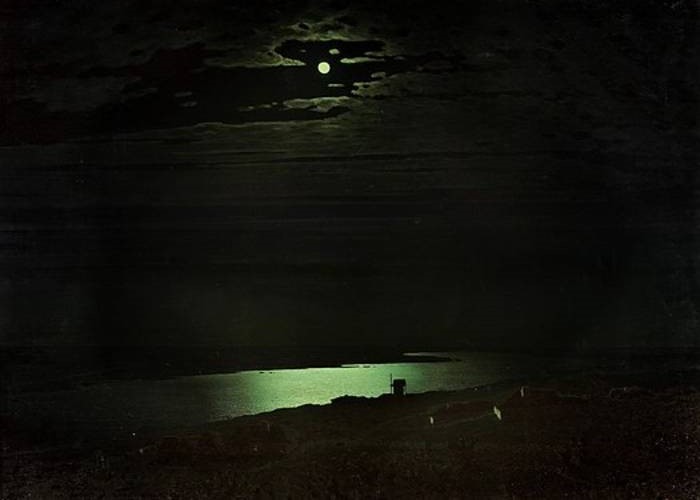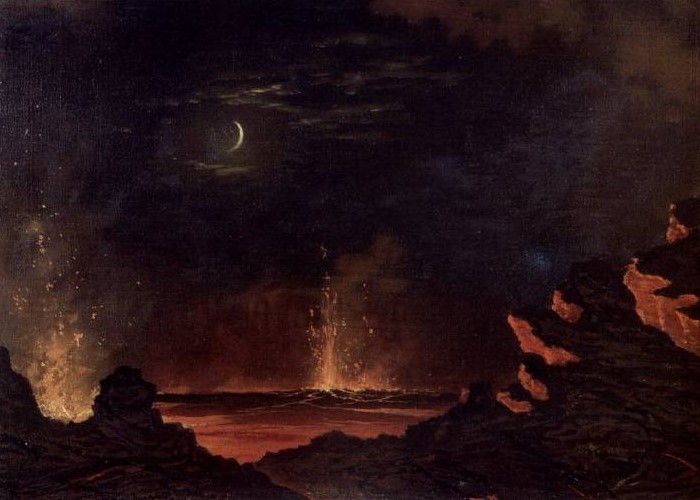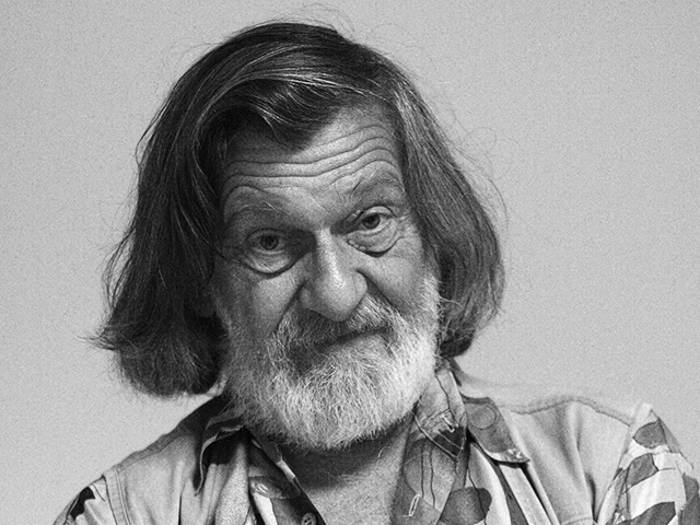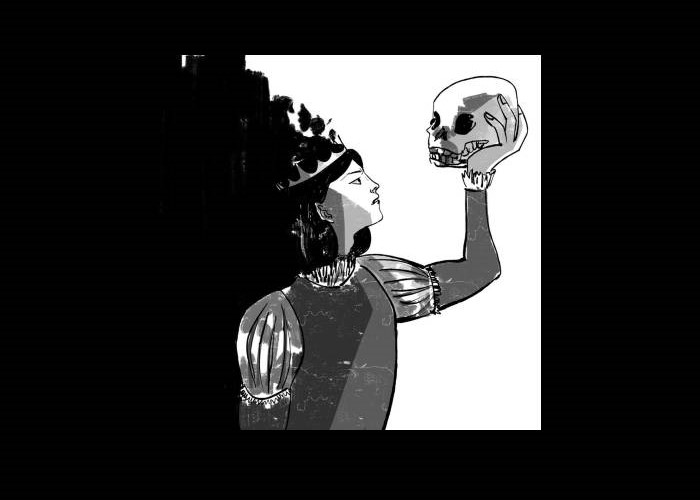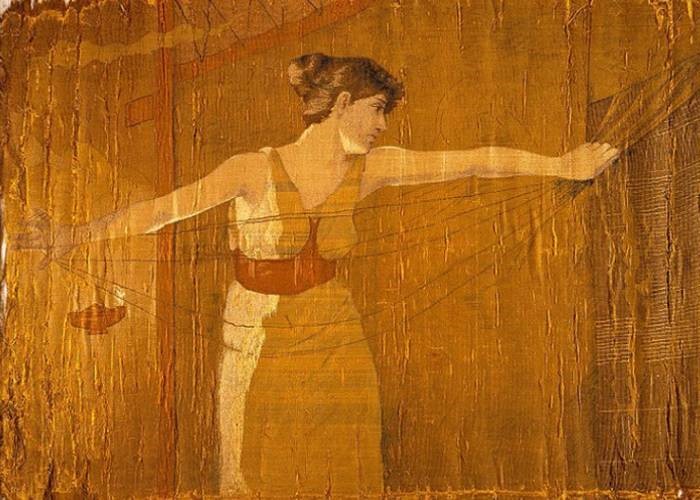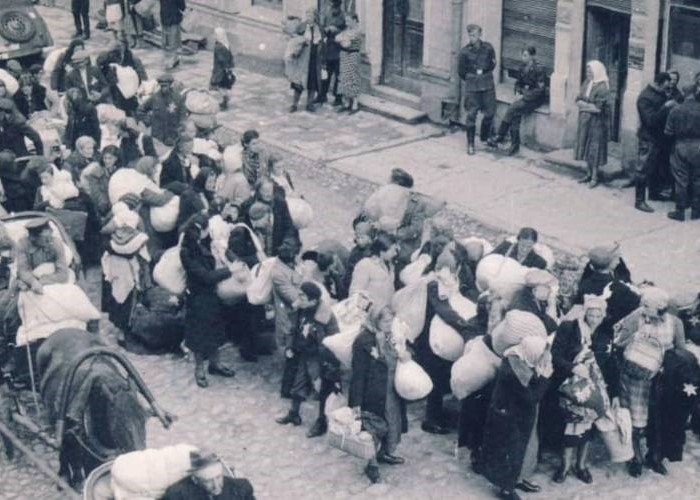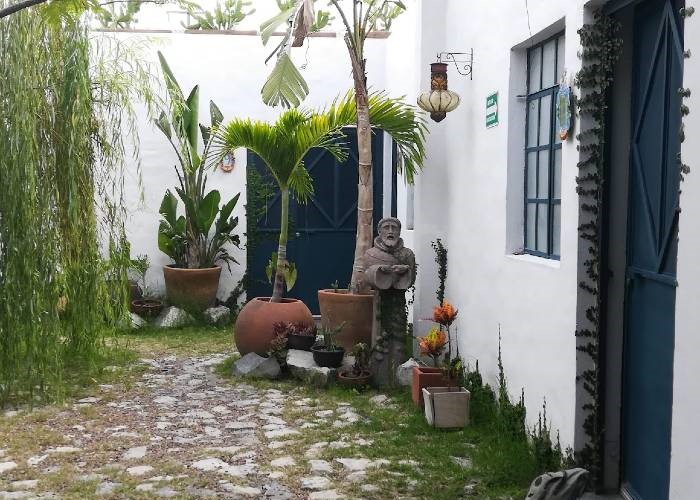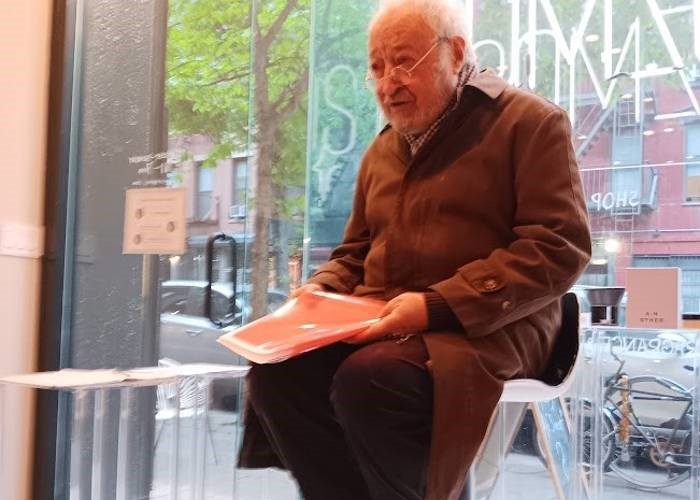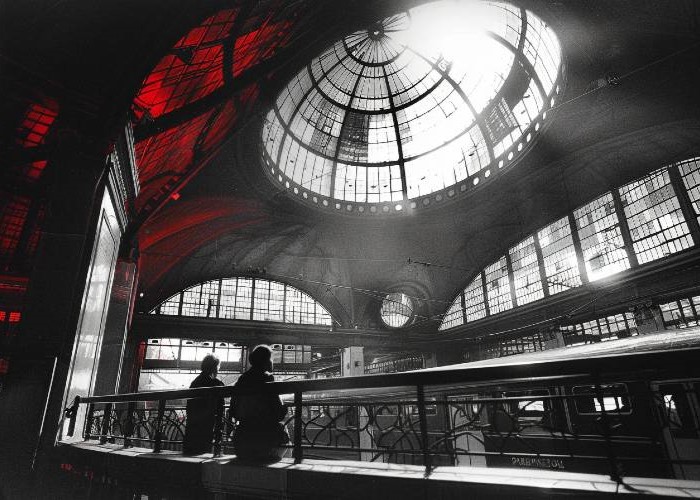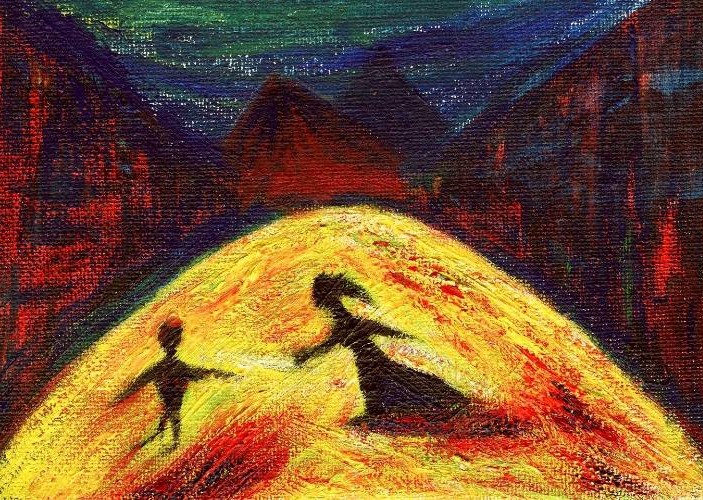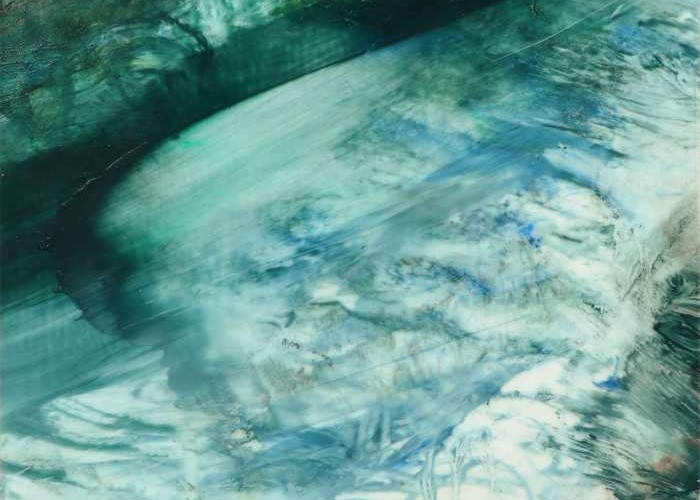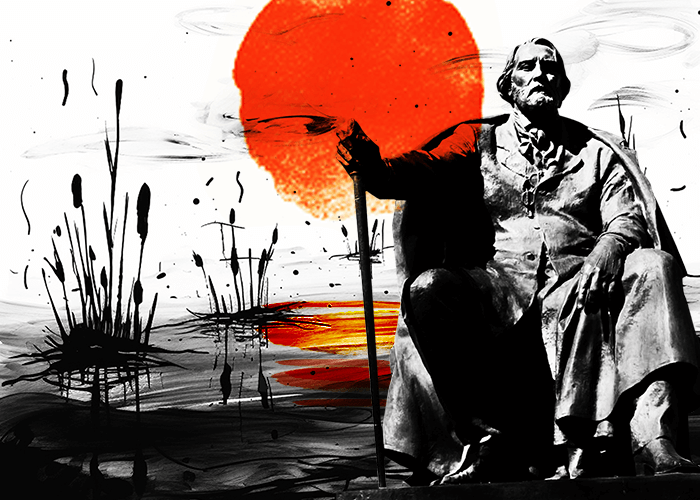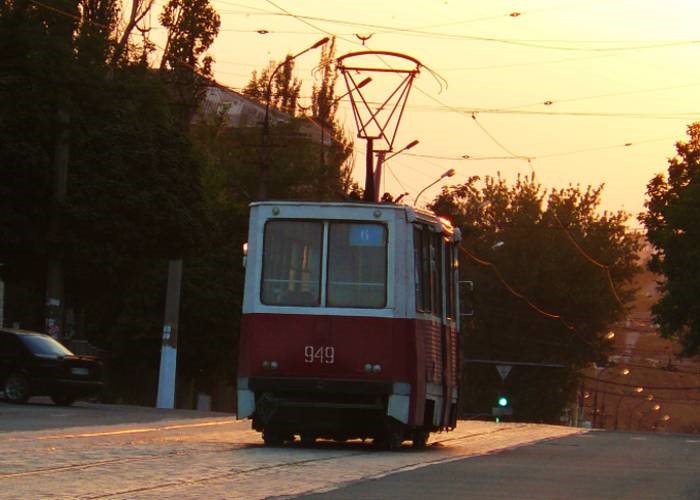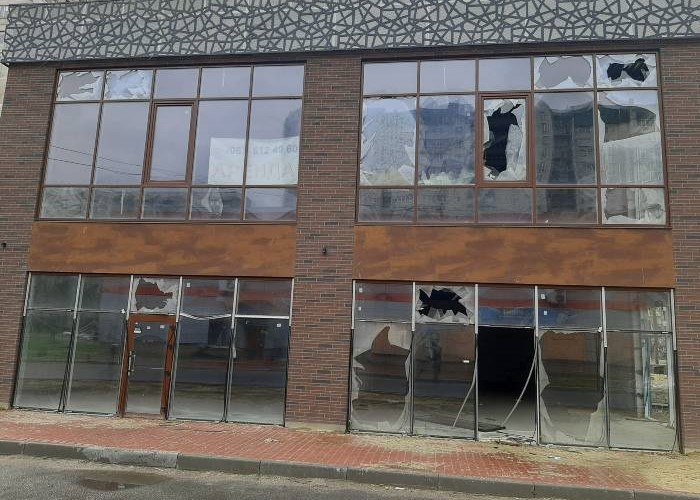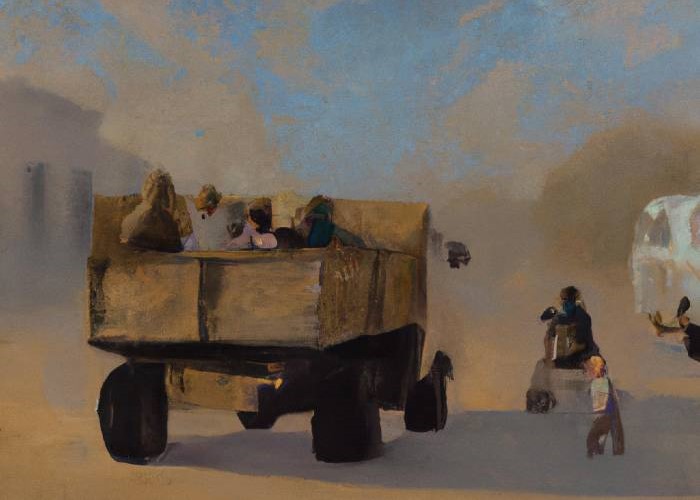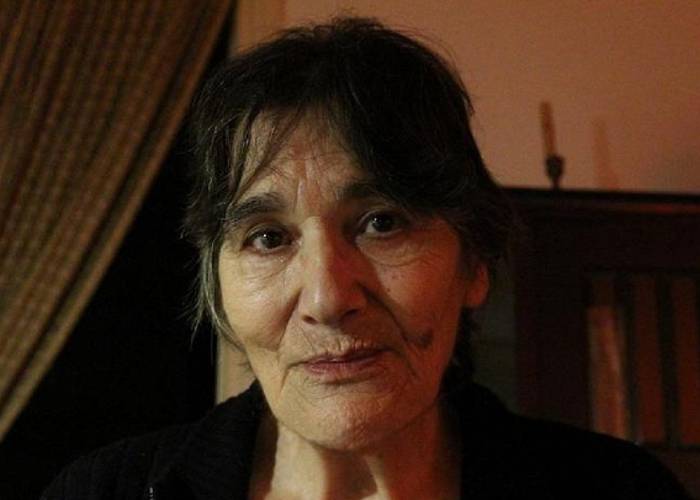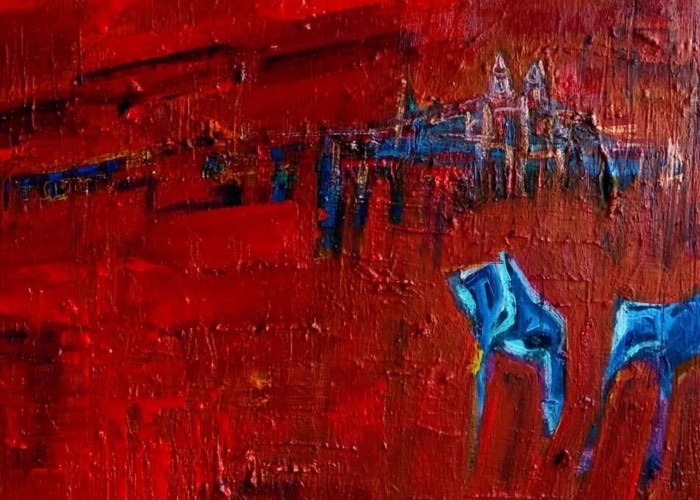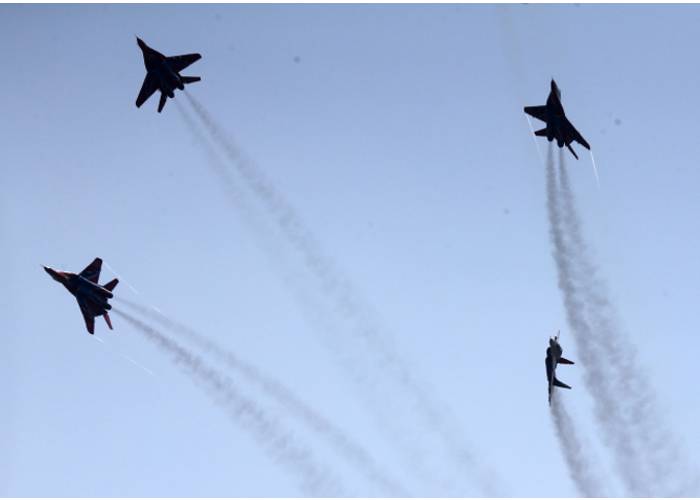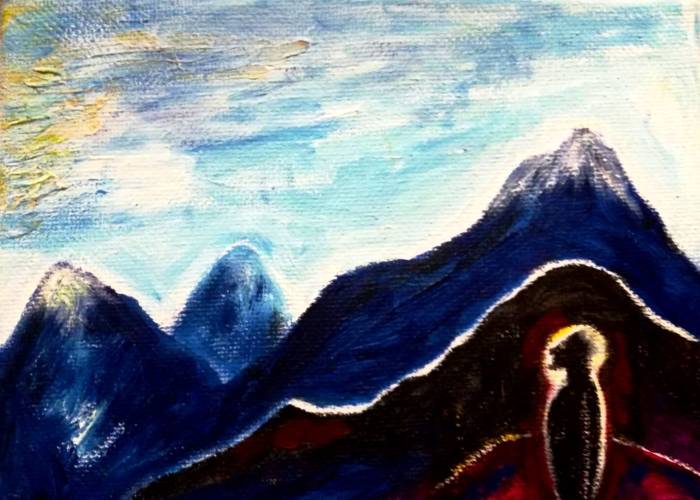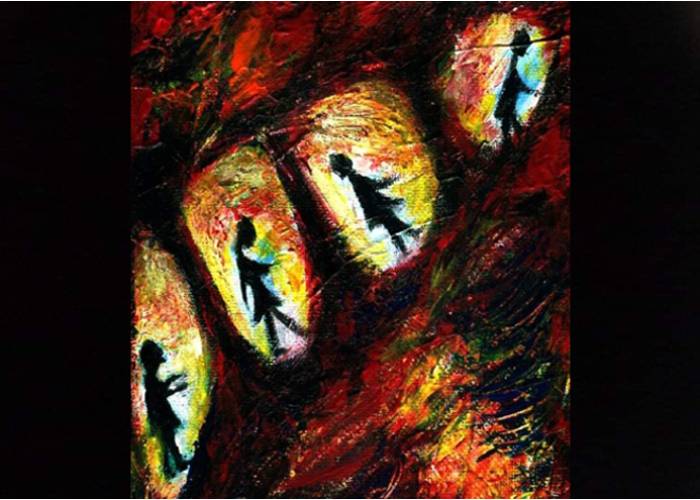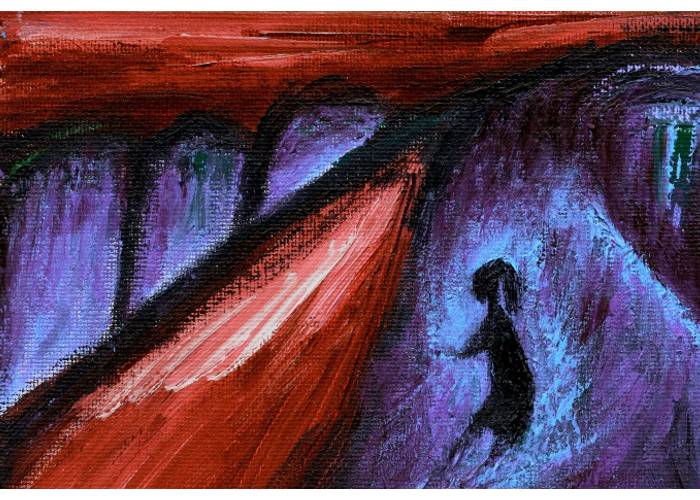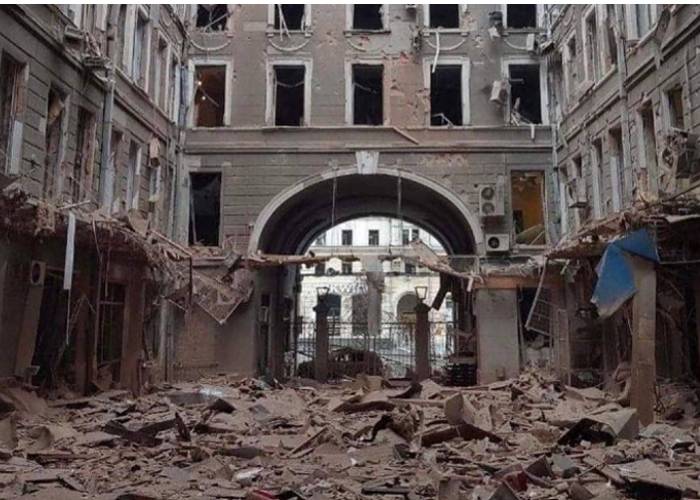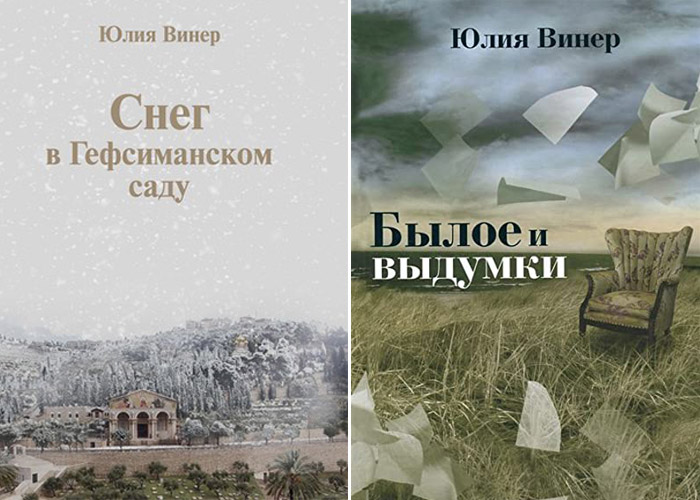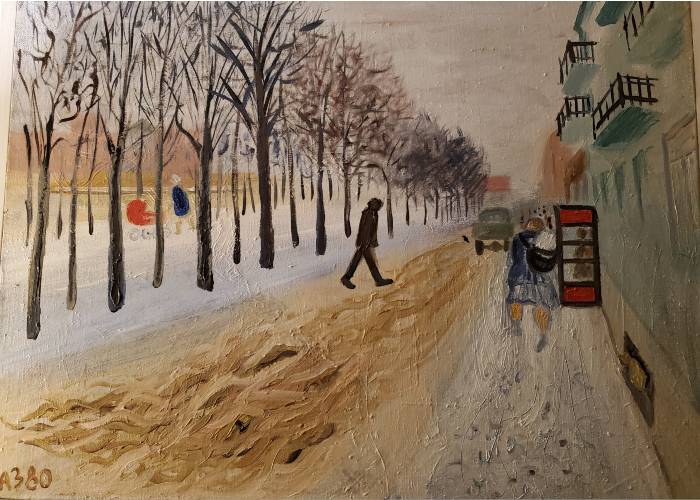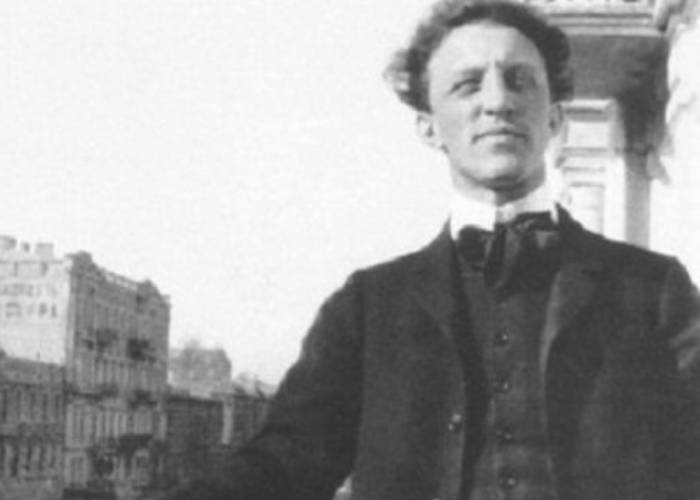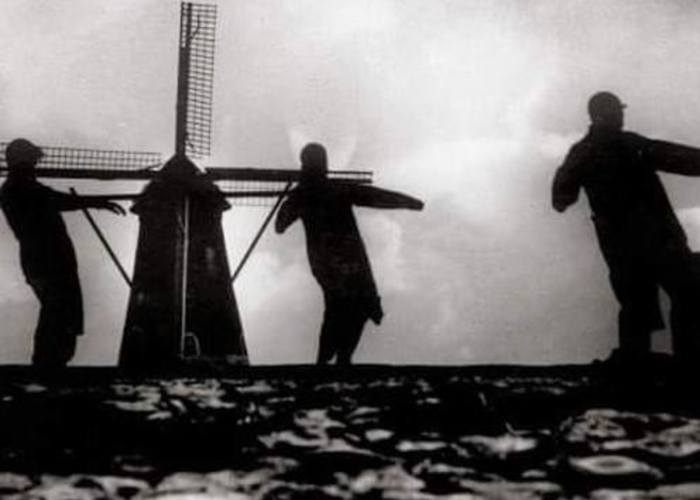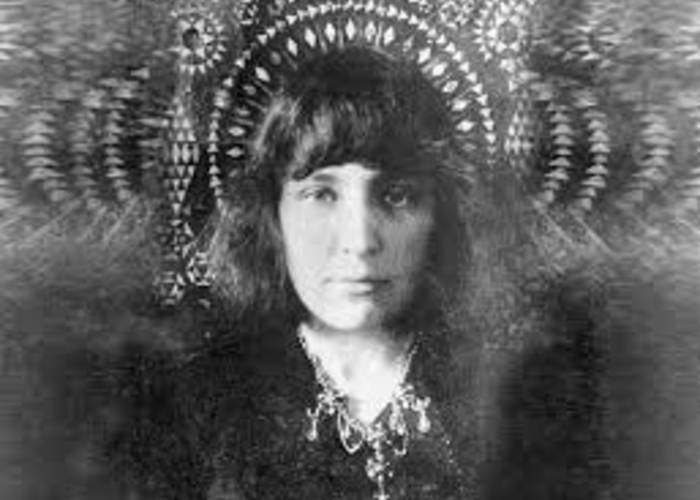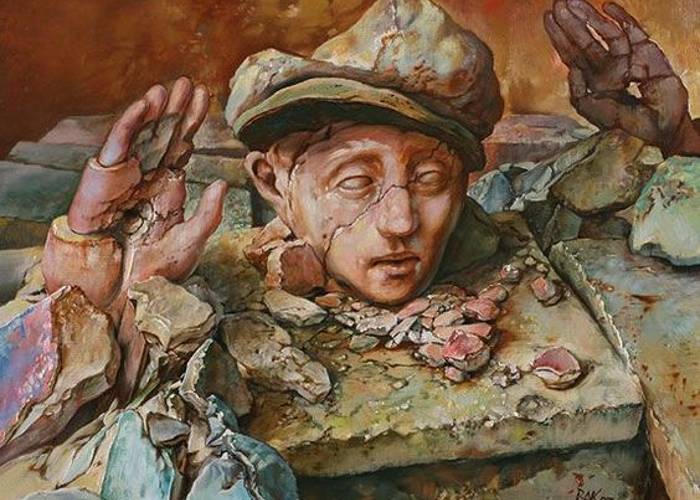God, Gotteniu,
I had never been taught the formal language of prayers
I can only talk to you in the voice
of a scared rabbit hiding in the bush
with his stupid little tail sticking out
I can talk to you in the voice of mama raccoon
carrying her striped offspring one by one
by the skin of their necks
away from the two screaming women
who had discovered her nest
in their country house shed.
I can pray to you like a drying out tree
stretching naked branches at night
into the tangerine sky
like the tide lapping against the side
of the wooden pier
in the moonlit sea.
In the yellowed photo ten Jewish women
half-naked
clutching each other in anguish|
standing with their backs to the pit
ready to be shot
photographed by some unknown executioner
in Ponary
where were you then, God,
you bastard?
I wish I believed that people are good at heart
like the fifteen-year-old Anne Frank.
I am a little Soviet pioneer in a red tie
saluting you.
I do believe, though,
In the synergy of a beehive
complex harmony of behaviors of ants in an anthill
the divine architecture of beaver dams
before a mad hunter shoots the female
and the male begins madly swimming in circles
mourning his mate in the bloody pond.
